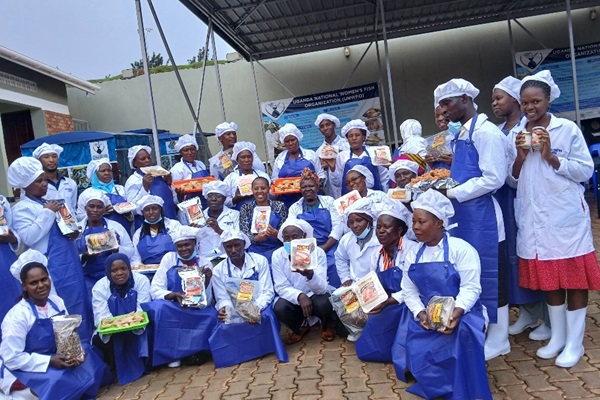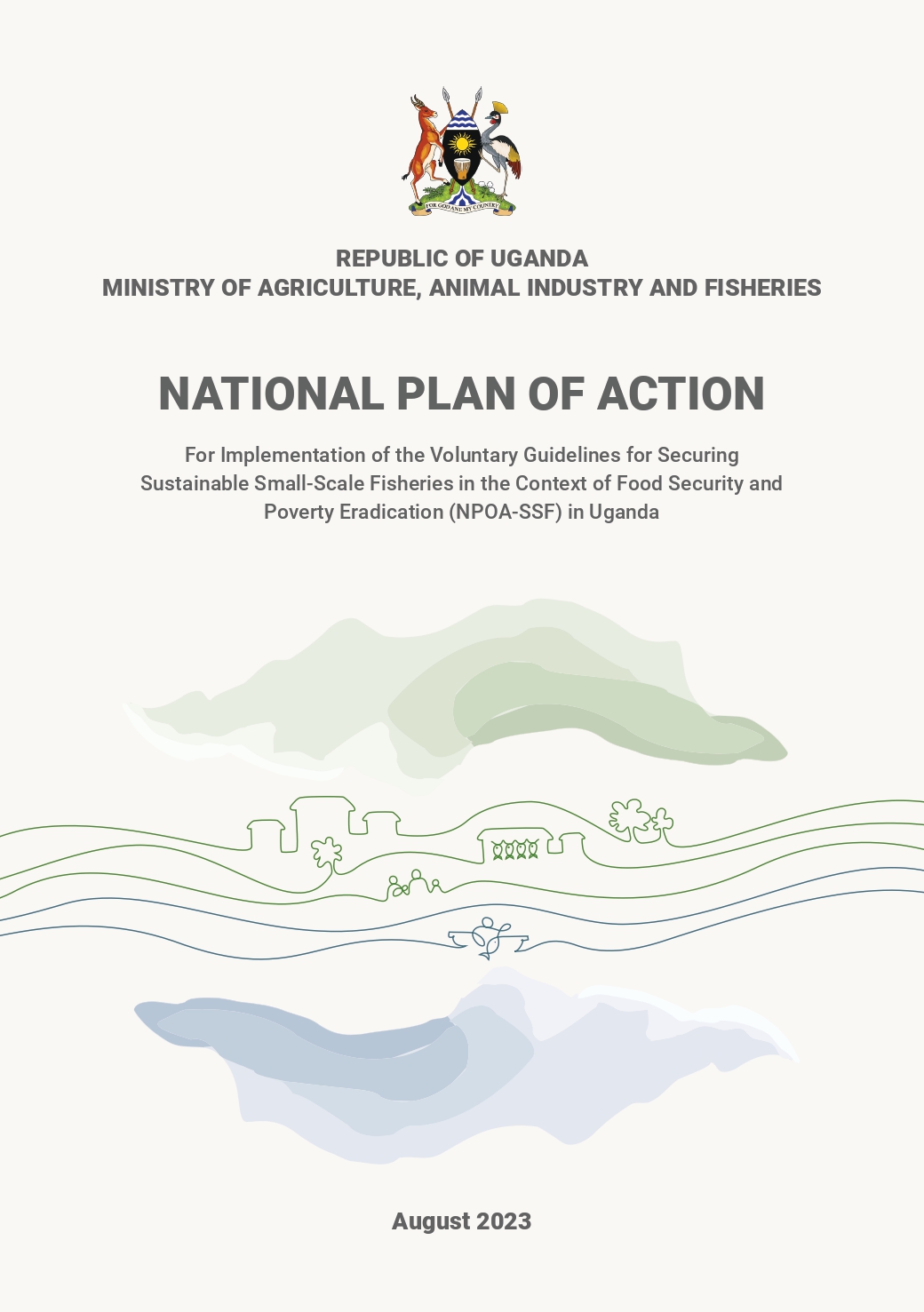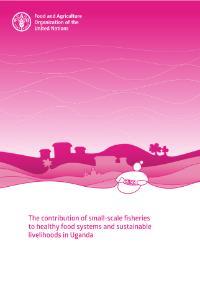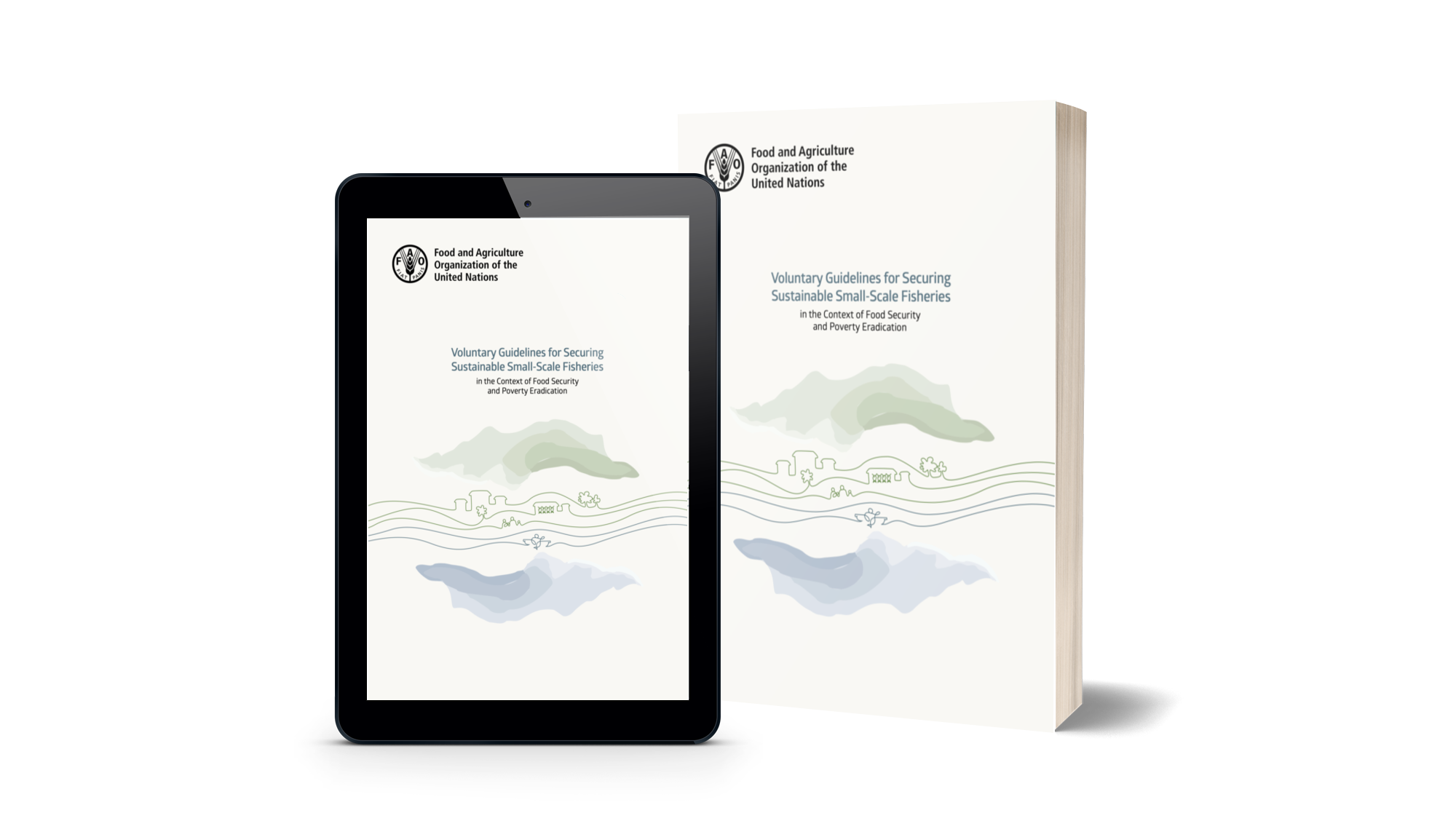Uganda
The small-scale fisheries subsector plays a critical role in providing livelihoods and food security in Uganda. The subsector operates exclusively in inland waters, as the country is landlocked. Uganda has 5 major lakes and 160 minor lakes, with a high species diversity that supports both livelihoods and national income. Indeed, the fisheries sector contributes 2 percent of the gross domestic product (GDP) and 12 percent to agricultural GDP (learn more).
The project “Implementing the Small-Scale Fisheries Guidelines for Gender-Equitable and Climate-Resilient Food Systems and Livelihoods – Phase 2”, a sub-programme of the FAO Flexible Voluntary Contributions fund (FVC), continues the work developed during the first phase of the project. This includes promoting training in post-harvest fish processing techniques and preservation methods, supporting awareness and dissemination of the National Plan of Action for Small-Scale Fisheries in Uganda (NPOA-SSF), and assisting in the updating of gender-disaggregated data on women and youth in SSF value chains to support informed decision-making.
The activities carried out under the first phase of the project “Implementing the Small-Scale Fisheries Guidelines for Gender-Equitable and Climate-resilient food systems and livelihoods”, assisted national small-scale fisheries stakeholders, especially women involved in post-harvest activities, by enhancing their capacities to produce healthy aquatic food products. To achieve this, the project provided beneficiaries with training in post-harvest fish processing techniques and preservation methods.
Support was also provided for the development of appropriate small-scale post-harvest infrastructure, along with related training and arrangements that allow small-scale fisheries stakeholders to actively participate in its management. Women’s groups in small-scale fisheries are not only supported in enhancing their technical capacities but also in matters of governance and financial management, enabling them to diversify their sources of livelihoods.With the objective of improving food security and nutrition, the project also collaborated with local partners to train child caretakers in beneficiary communities on the nutritional benefits of consuming aquatic food products and how to integrate them into children’s diets.
Related Publications
Related News
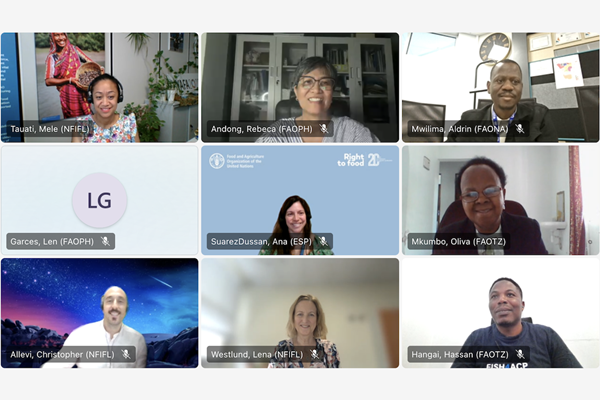
Project’s quarterly call highlights progress and lessons learned ahead of project closure
02/09/2025
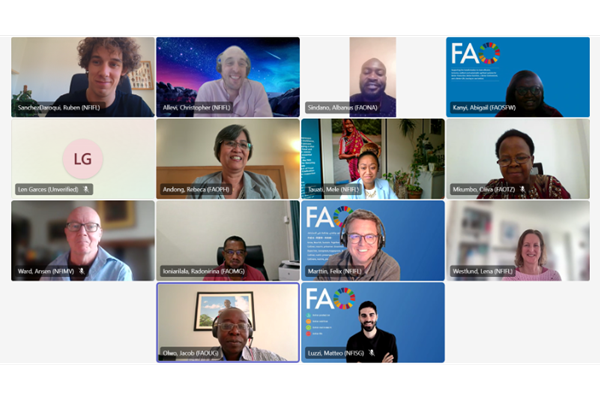
Progress and achievements are presented during the quarterly meeting of the Implementing the Small-Scale Fisheries Guidelines for Gender-Equitable and Climate-Resilient Food Systems and Livelihoods project
16/04/2025
The meeting aimed at checkpointing on progress, as the project is about to reach its final semester. Most project logframe targets have been met or exceeded thanks to dedicated implementation teams in the various country offices and the collaboration with small-scale fisheries and government counterparts...
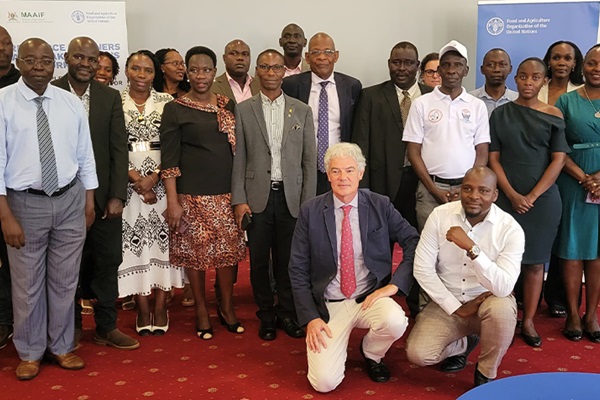
Stakeholder’s Conference on the National Plan of Action for Sustainable Small- Scale Fisheries (NPOA-SSF)
04/04/2025
A Stakeholder’s Conference on Uganda’s National Plan of Action for Sustainable Small- Scale Fisheries (NPOA-SSF) was held on 14th March 2025 at the Serena Conference Centre in Kampala....
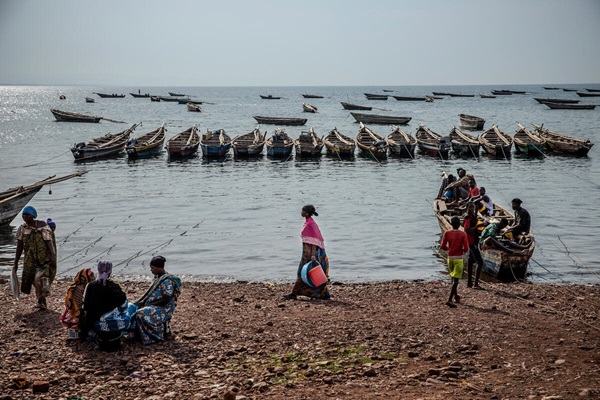
FAO partners with Sweden to boost sustainable small-scale fisheries
02/03/2024
Rome – FAO has signed an agreement with Sweden on a project to boost small-scale fisheries. Sweden, through the Swedish International Development Cooperation Agency (Sida), will fund the project "Enhancing equitable, climate-resilient and sustainable SSF through SSF Guidelines implementation" with a contribution of SEK 70 million (USD 6.8 million)...
